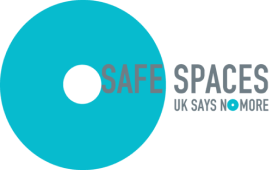Substance abuse
Addiction has been described as an inappropriate and dangerous way of resolving mental pain or stress. Just as we, for all sorts of reasons, can suffer from stress, anxiety and depression, many of us turn to addictive substances or processes to give ourselves a short-lived buzz or high. Unfortunately, this leads to more problems in the longer term.
Along with other health professionals, people in the veterinary community are at risk of being addicted to more than one substance. Some of these are:
- alcohol
- ketamine
- benzodiazepines
- opiates
- street drugs (cannabis, heroin, cocaine and ecstasy)
- nitrous oxide
Addiction can affect all aspects of our lives including home life, working relationships, professional competence and business competence.
The good news is that with help and motivation to change, including a one-to-one individually tailored therapy programme, a high proportion of addicts will return quickly to work and to normal family relationships.
- Addiction to drugs and alcohol is not something which is limited to a particular profession or type of person. Addiction does not discriminate
- Addiction can be overcome, and people can and do recover – this is often speeded up when support is available
Support comes in a number of guises:
- Professional help, starting with speaking to your GP or using local addiction services
- Professional help from a substance misuse practitioner (see Vetlife Health Support)
- In-patient treatment
- Quasi residential service (access on a daily basis)
- Mutual aid groups such as the 12-step programs of Alcoholics Anonymous (AA) and Narcotics Anonymous (NA)
All services are confidential, and many can be accessed free of charge as they are provided by local authorities, the NHS or third sector organisations.
Recovery from addiction is contagious. Spending time with other people who are recovering from addiction, i.e., those on their own recovery journey, is useful because other recovering addicts are often the best placed to help. This is why groups such as AA and NA are beneficial.
Helping someone else with an addiction
Often people with an addictive problem don’t recognise that they have a problem, or delude themselves that they can “handle it”. Family, friends and colleagues are often the first to realise that someone is ill and needs help.
Others who perceive the problem and recognise that a person is incapable of asking for help often need to intervene.
Some things you can do…
- Reach out for advice and support from organisations that deal with these issues regularly (see link to the group Al Anon below)
- Speak with your GP
- Contact Vetlife Helpline. This contact will be completely confidential and can be the first step to the addicted person being offered professional help
- Support is also available for family, friends and colleagues who are experiencing difficulties dealing with an addicted person from both Vetlife Health Support and Vetlife Helpline
- Contact a private treatment clinic in the UK or abroad. Vetlife Health Support can advise on the choice of a suitable clinic, although we are unable to fund the treatment ourselves.
Support for the families of addicts
These problems not only affect the individual, but also everyone around them, so it is normal for families to need support.
Many residential treatment programmes will offer help to the family as part of their care package.
As a first step, have a look at the family resources section below. If you need specific advice or are confused about what to do then call Vetlife Helpline. We understand the impact of substance abuse on family, friends and colleagues and can point you towards further help.




